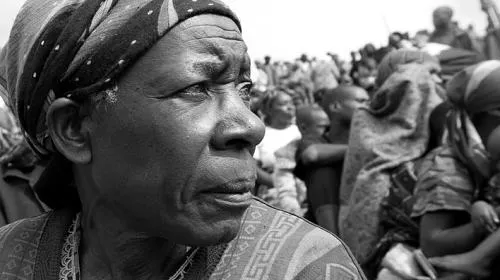ATLANTA (Nov. 21, 2013) — CARE USA hailed the introduction today of H.R. 3571, the International Violence Against Women Act (IVAWA), by Reps. Jan Schakowsky (D-IL), Nita Lowey (D-NY), Richard Hanna (R-NY), Eliot Engel (D-NY), Chris Gibson (R-NY) and Debbie Wasserman Schultz (D-FL). This bipartisan legislation aims to make ending gender-based violence (GBV) a top diplomatic priority of the United States. IVAWA will require the Secretary of State to implement a comprehensive interagency strategy to address GBV and raise the profile of efforts to halt violence against women within the State Department and the U.S. Agency for International Development (USAID).
As many as one in every three women around the world has been beaten, coerced into sex or abused in some other way – most often by someone she knows, including by her husband or another male family member. This violence leaves survivors with long-term psychological and physical trauma, tears away at the social fabric of communities and is used with terrifying effect in conflict settings, with women as the main target.
“Violence against women is sadly happening at epidemic proportions around the world,” said David Ray, CARE USA’s head of policy and advocacy. “At CARE we have witnessed both the suffering experienced by survivors of unspeakable violence, as well as the cost to valuable U.S. investments in health, education, economic empowerment and food security. The International Violence Against Women Act is an important tool for the U.S. as it works to combat gender-based violence and will help to support the ongoing efforts of countless advocates and activists in the 84 countries where CARE operates.”
About CARE: Founded in 1945 with the creation of the CARE Package®, CARE is a leading humanitarian organization fighting global poverty. CARE places special focus on working alongside poor girls and women because, equipped with the proper resources, they have the power to lift whole families and entire communities out of poverty. Last year CARE worked in 84 countries and reached more than 83 million people around the world. To learn more, visit www.care.org.

